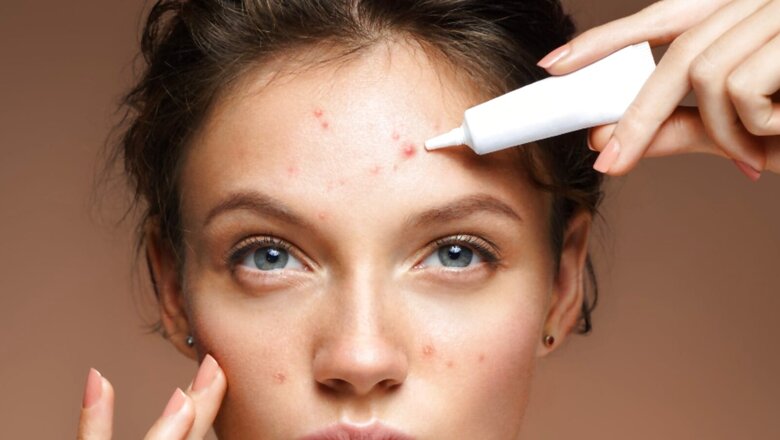
views
Those of us with acne-prone skin can sympathise; we are terrified of anything that feels heavy on the skin or that can clog pores, so for us, less is more. In fact, we will go to great lengths to keep acne outbreak indications at a minimum on our skin.
The good news is that not everything needs to be avoided. Skincare can be quite therapeutic, and it is especially helpful for people with acne-prone skin. Here is a simple guide to help you understand which elements in cosmetic formulations may contribute to acne.
The ingredients listed below should be avoided if you have acne-prone skin.
Silicones
Because they leave the skin feeling creamy, silicones are commonly used in skincare, hair care, and cosmetic formulations. The silicone is responsible for the immediate sensation of softness on the skin and the extreme ease with which a cream distributes over the skin. Although it has significant occlusive characteristics and is a nice feel-good substance, it offers little to support healthy skin. In fact, it creates a thin layer to add to the softness, which clogs pores and results in acne outbreaks.
Coconut Oil
Oils are not all made equal. Coconut oil is not a good choice for acne-prone skin, but sesame oil can be. Even though coconut oil is well known for its many advantages, it is advisable to avoid using it if you have acne-prone skin. With a comedogenic rating of 4 out of 5 (with 5 being the most pore-clogging), coconut oil has a hefty molecular weight and is therefore very prone to clog pores and result in breakouts. It is extremely improbable that it will be absorbed via the skin due to its high molecular weight of 555 Dalton. Since many people are sensitive, applying coconut oil may result in the formation of a layer of photosensitive oil on the skin’s surface.
ALSO READ: Why It’s Still Crucial to Use Sunscreen in the Winters
Sodium Lauryl Sulphate (SLS)
One of the most prevalent cleansing ingredients is SLS, which can be found in shampoo, detergent, and even dishwashing solutions. This is due to the fact that it is a superb cleanser of dirt, oil, and filth; in fact, it is so effective that it even strips the skin of its natural oils, which control how the skin behaves. The skin’s barrier is disrupted when the skin is stripped off, and people with oily skin frequently discover that their skin begins to produce extra oil to protect the skin’s barrier. Inflammation and acne outbreaks are brought on by the disruption of the skin barrier and the uncontrolled production of sebum. It is preferable to double cleanse with micellar water followed by a gentle face wash if you have acne-prone skin than to use a harsh face wash.
Read all the Latest Lifestyle News here




















Comments
0 comment